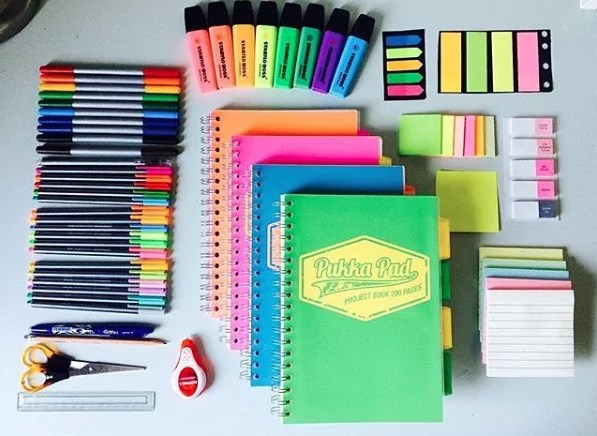While you might still be recovering from the first semester, the second semester is creeping up on you and it won’t be any easier. It’s time to get your things in order and avoid mistakes you made in the first semester. Here are 6 tips that have helped me prepare for the new term, and I hope they will help you too.
1. Register well in advance

Doing things well in advance is always good to avoid disappointment later. Registration is usually open for about 2 weeks, so it’s best to do so as soon as possible. Registering early allows you to access your modules on your online learning platforms, such as the popular one, Moodle.
2. Go through your modules on Moodle

Go through your modules on moodle to dot down lecture contact details, get access to course outlines and if your lecturer is prompt, you might get access to your first week’s lectures. Having your lecturer’s details already noted down gives you easy access to them whenever there’s a problem or when you want to schedule a meeting. This also helps you avoid asking your peers on WhatsApp groups for their details. With the first week’s lectures already in possession, you can already start scanning through the content and mentally prepare yourself for that module.
3. Purchase your stationery and books earlier

Long gone are the days when schools used to give out stationery lists. I don’t know if I’m the only one, but stationery shopping is one of the few things I look forward to when starting a new semester. Purchasing aesthetically pleasing books, folders and pens excites me. With that being said, make sure you have all your basic stationery pieces. To lessen your stress, hit the shops before all the good stationery is gone and avoid long back-to-school lines.
You don’t have to spend a fortune on stationery unless you want to. If you want affordable stationery, visit shops like pep, Woermann brock and crazy store. If you have a bigger budget, visit CNA and Waltons. And if money isn’t an issue at all, Typo is the shop for you. Especially if you have an aesthetic you want to achieve.
4. Have a planner and print out calendars

Back to the admin stuff. I recommend printing out calendars and filling them with important dates well in advance so that you can plan your study schedules around them. Make sure your academic calendar is pasted up somewhere where you can glance at it whenever you want. Digital also works. Using notion and google calendar is a great tool too, but I prefer all things manual.
5. Create a personalized study plan

There isn’t one way to study and you might also find yourself using different study methods for different modules. It’s important to know your academic strengths and weaknesses to aid you in choosing a method that works best for you. Now that you have your study method, plan when you’re going to use it.
Some students study better at night, others in the afternoon. While some, like me, prefer an early morning read. Whatever time you prefer to study, schedule and plan when your study sessions will be done. Your study plans are usually centered around test and exam dates, so they can serve as a guide.
5. Write down your semester goals

Most of the preparatory steps are done, but I believe this step is the most important. Writing down your goals, in general, helps you to visualize where you’re headed. When writing your academic goals, for example, to obtain a distinction in Calculus, write the ‘why’ alongside it. It’s easy to have a list of goals but if you don’t have a reason, you’re less likely to do it. It’s important to note that not all your goals will be met, and that’s okay as life happens. However, put in all the effort that you can.
Write your goals out on paper and paste them where you will be able to see them often so that it serves as a reminder.
Now that you got all of that done, go ahead and make the most of your semester. Remember that breaks are necessary to avoid burnout. Attend all your classes as much as you can, put in the work to reach your academic goals and remember to always ask for help when you don’t understand something.
Good luck to you!




2 Replies to “How To Prepare For A New Semester”